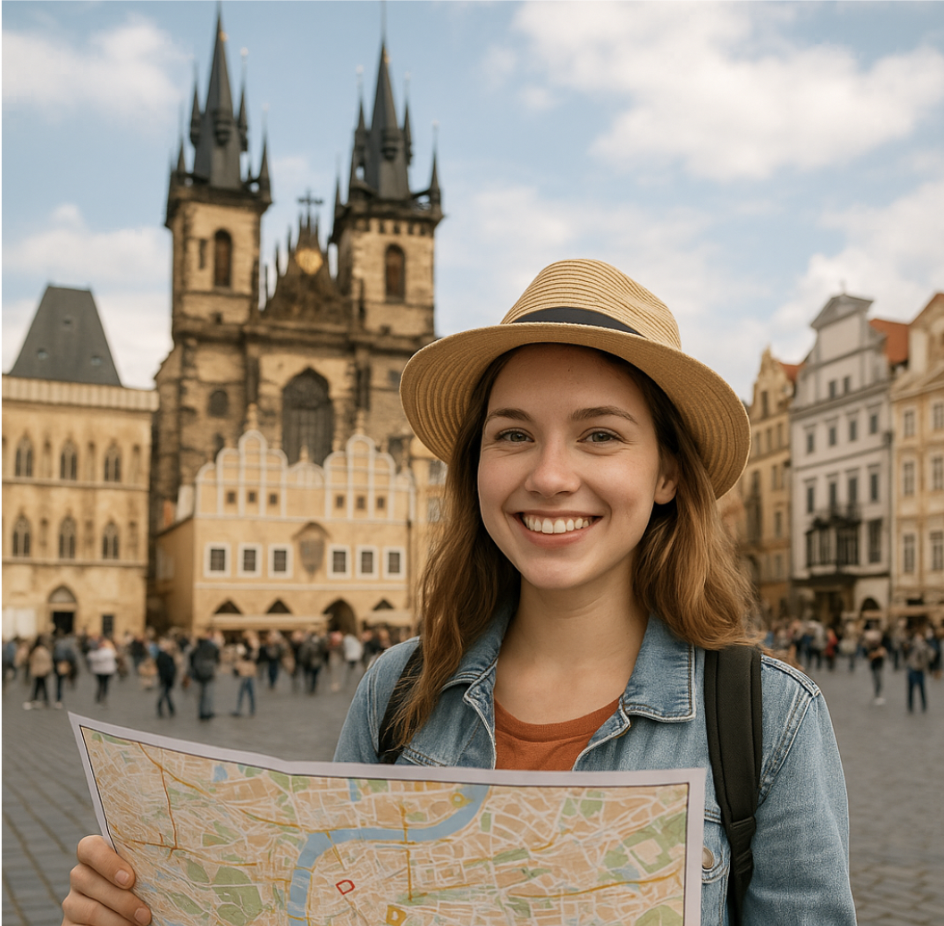The people outside the Colosseum in Rome were pushing forward, ready to take pictures; however, for María Gomez, a TCS student, time stood still. As the sun illuminated the old stones, all of a sudden, she could visualize all the spectators in the colosseum arena from way back in history. It wasn’t just a monument, a moment that could pass by; it was a magnificent piece of history that she was there to witness.
A journey across Europe in the summer of 2022 became more than just a journey for María. From getting lost on strange streets to realizing that everyday life moves more slowly, every stop had an impact. What started as a simple vacation evolved into a number of teachings about perspective, culture, and the importance of slowing down.
The Colosseum was the moment that stayed with her most clearly. “The moment from the trip that I remember most clearly was when we went to the coliseum in Rome,” Maria said. “I think that seeing it in person was really amazing, and there were a lot of people, and I couldn’t stop thinking about all the great events that had happened there over the years” [00:39].
She explained that seeing the site in person gave her a stronger sense of connection to the past than any textbook ever had. The mix of crowds, noise, and history made her realize that travel is not just about seeing something, it’s about feeling it. From city to city, she noticed those same contrasts: the chaos of modern life set against centuries-old streets.
Not every highlight was planned. In Prague, María and her family took a wrong turn one evening while searching for a restaurant. “Yes, we did face an unexpected situation while traveling,” she said. “It happened in Prague when we got lost, trying to go to a restaurant, and at first I thought it was very stressful. We were really worried because we didn’t know where we were going. But then it was really fun because while we walked, we discovered new streets and new places”.
What started as frustration turned into one of the most memorable parts of the trip. Wandering without a GPS or route gave her a glimpse of hidden courtyards and quiet corners she might have missed. She later reflected that getting lost showed her the value of letting go of control sometimes, and that many times the best experiences happen by accident.
Other lessons were important throughout her trip. In Vienna, she noticed a slower rhythm of life. “One thing that really surprised me about European culture was their calm lifestyle,” she said. “For example, in restaurants or even on the streets, for example, in Vienna, people really take their time to enjoy a coffee and the conversations with others. This made me realize that daily life doesn’t always have to be in a rush. You can enjoy the little moments”.
She explained that this was a good contrast to her daily routine at home. Instead of rushing, people there seemed to measure time differently, choosing to live the moment rather than hurry, as is more common in Medellín.
María’s story demonstrates how travel changes how people view the world and themselves. Her experiences, which range from history to fun and unique meetings, illustrate a way of thinking and a notion: traveling is about more than just the destinations you visit; it’s also about the lessons you learn from them.
Looking back, María remembers the lesson more than the itinerary. “Traveling isn’t just about visiting famous places,” she said. “It’s also about noticing the small things and appreciating everything.”



